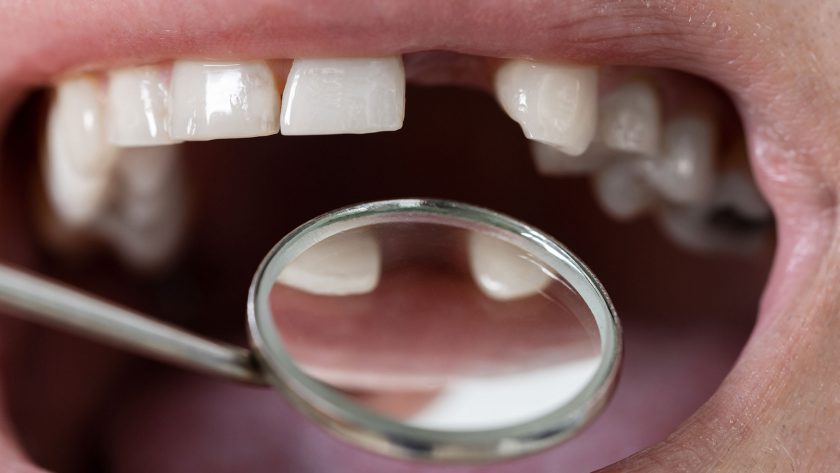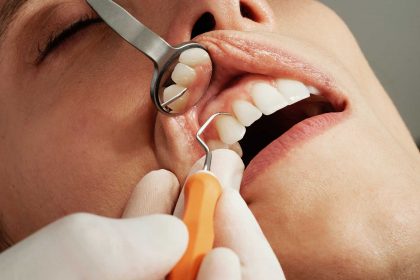When it comes to replacing missing teeth, you’ll generally hear about three options: implants, bridges, or dentures. Depending on your circumstances, one or the other might be more appropriate for you.
The best option is to stay on top of your dental health and keep your natural teeth for as long as possible. An implant or bridge will then be a less drastic way to resolve problems as they arise. The worse you let conditions inside your mouth become, the closer you get to losing your teeth and needing dentures.
If you’re looking for a solid solution to tooth loss—something that’s going to last for years to come—talk with an experienced dentist or prosthodontist about your options so you can make an informed decision.
What is a dental implant?
A dental implant is a type of fixed restoration that involves attaching a dental crown to an implant embedded in your jaw bone. This conservative approach has no negative impact on adjacent teeth. Placement of the implant does involve surgery, and to ensure success there should be minimal preexisting damage or deterioration to the bone. Not all patients will be suitable candidates for implant placement.
What is a dental bridge?
A dental bridge is more invasive, as it involves removal of enamel from healthy teeth on either side of where a missing tooth would have been located. A custom fabricated tooth is then attached to these two prepped teeth, which serve as anchors for the replacement tooth. This an option for people who have lost one or more teeth and are unable or unwilling to have a dental implant.
What are dentures?
Dentures—colloquially known as false teeth—are removable replacements for missing teeth and tissue. They’re held in place by either suction or adhesive, and can be complete—replacing all your teeth—or partial. Dentures can be awkward to use, requiring adjustments to how you speak and eat. They can also be a classic source of comedy when they fall out at the most inappropriate moment or into the most inappropriate place.
Which option is most cost-effective?
Dental implants are typically the most expensive solution since they require surgery and multiple office visits. But they are meant to last a lifetime, while bridges last for five to ten years (or longer with good oral hygiene habits). Dentures might require many office visits in order to get the fit just right, and they also have a habit of becoming lost or misplaced. If you’re not careful, you might accidentally cough your dentures down the toilet tomorrow—and then you’d have to pay for them all over again!
What happens if you choose not to replace the missing tooth?
Besides looking less than elegant, a missing tooth can be harmful to your health. It’s super important to replace any missing teeth with a dental implant, bridge, or other appliance recommended by your dentist. There are many consequences to living with a missing tooth that you may not have considered, such as the inability to eat and chew properly, which will eventually take a toll on your overall health and nutrition—particularly as you age.
In addition to malnutrition, living with a missing tooth changes the alignment of your remaining teeth. When you don’t mind the gap, the adjacent teeth will start to shift toward each other (side to side, and up and down). Eventually, problems such as crowding, crookedness, and uncomfortable pressure can occur, which can become the gateway to poor oral health.
Choosing not to replace a tooth should never be an option.
So what’s best for you?
The answer to that question depends on your individual situation and preferences. A bridge is adequate if you’re looking for a more traditional option with less surgical involvement, or if youa’re not a suitable candidate for an implant. A dental implant is best if you’re looking for a more conservative approach when it comes to tampering with perfectly good adjacent teeth, and you want a solution that’s most likely to last a long time. Dentures are generally a “last resort” option when your gums and multiple teeth are in pretty bad shape. Please don’t let it come to this!
Whatever method you choose, it’s important that all options are fully explained by your dentist so that there are no surprises down the road. If you’d like to learn more, schedule an appointment today!




